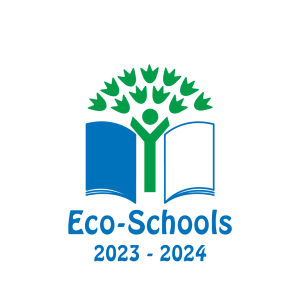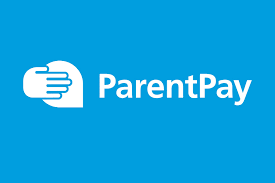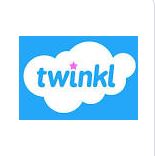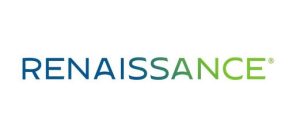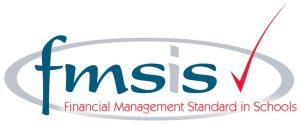Long Term Plan
Long Term Plan for Religious Education
Intent
What is taught?
At St Helen Auckland Community Primary School, we believe that RE has an important role to play as part of a broad, balanced and coherent curriculum to which all pupils are entitled. It provides a positive context in which the diversity of cultures, beliefs and values in society can be celebrated and explored. RE provides an opportunity to promote an ethos of respect for others. Lessons ensure that our children grow to become tolerant and respectful citizens, who appreciate that everybody has their own set of beliefs and values and that these may differ from their own. Our curriculum encourages children to ask and reflect on challenging questions and provides opportunities for personal reflection where children can explore their own beliefs and opinions in a safe and supportive environment. The RE curriculum forms part of our school’s spiritual, moral, social and cultural teaching.
St Helen Auckland Community Primary School follows the Agreed Syllabus for Religious Education in County Durham where it is designed to ensure that pupils develop deepening knowledge and understanding about a range of religious and nonreligious worldviews so that they can
describe and explain beliefs and theological concepts
describe and explain some sources of authority and teachings within and across religious and non-religious traditions
describe and explain ways in which beliefs are expressed
know and understand the significance and impact of beliefs and practices on individuals, communities and societies
connect these together into a coherent framework of beliefs and practices
gain and deploy deepening understanding of specialist vocabulary and terms
know and understand about religious diversity within the region, as well as nationally and globally
know and understand how religion can be defined and what is meant by the term “religious and non-religious worldviews” and with increasing clarity know that these worldviews are complex, diverse and plural
gain and deploy skills that enable critical thinking and enquiry in relation to the material they study
reflect on their own thoughts, feelings, experiences, ideas, values and beliefs with increasing discernment
Implementation
How is RE taught in our school?
RE can be taught in a variety of way, in weekly lesson, 2 weekly lessons or a full day of learning. Each unit of learning has an allocated amount of hours learning required, teachers can use their professional judgement to decide the best way of teaching each unit, making sure the allotted hours are taught.
Early Years:
During the Early Years Foundation Stage (EYFS), Religious Education may be taught as part of whole class topics or themes.
The Agreed Syllabus uses the following themes to explore religion:
Special and Belonging. Children could explore these ideas through topics such as special times, special objects, special people, special books, how we show belonging, the natural world, new life, new places, and stories provide excellent opportunities for RE foundation work in Nursery and Reception and can be successfully built on at Key Stage 1.
Key stage 1
Pupils will be taught about:
Christianity – introduction to beliefs and practices and their impact.
Example of Unit Question – How do Christians celebrate Easter?
Buddhism – introduction to some beliefs and practices and their impact.
Example of Unit Question – How do Buddhists worship?
Religious diversity – introduction to the diverse religious and non-religious landscape in the local area (including differing denominations).
Example of Unit Question – What can we find out about our local faith communities?
Key stage 2
Pupils will be taught about the following themes and topics building on from the learning in KS1
Christianity – beliefs and practices across the denominations and the impact of these for individuals and communities.
Examples of Unit Question – Why are Good Friday and Easter Sunday the most important days for Christians?
So, what do we now know about Christianity? (Statutory Bridging Unit)
Hinduism – some beliefs and practices and the impact of these for individuals and communities
Example of Unit Question – What do Hindus believe?
Judaism – some beliefs and practices and the impact of these for individuals and communities
Example of Unit Question – Why do Jewish people go to the synagogue?
Religious diversity – the diverse religious and non-religious landscape across the region, including a special study of a local Muslim community
Examples of Unit Questions – What can we find out about diversity in our region?
What can we find out about a local Muslim community?
Similarities and differences within and between religious and non-religious worldviews through at least one thematic study e.g. about ritual, the environment, care for others
Examples of Unit Questions – How do people show care for others?
Why do people use ritual in their lives?
These topics carefully build on prior learning in previous year groups. Our RE Curriculum lends itself to developing the following key skills for life (Learning Powers):
noticing
questioning
making links
reasoning
capitalising
distilling information
Impact
Why is RE taught in this way?
Our RE curriculum is high quality, well thought out and is planned to demonstrate progression. Children will demonstrate a positive attitude towards people of any religion and show an understanding of cultural beliefs different to their own. They will be respectful when meeting visitors from a variety of faith groups.
Children will be inquisitive by asking questions at the beginning of a unit of work, they will then think about what they want to learn. They will be provided with a rich vocabulary for what is being taught and they will use this vocabulary throughout lessons and at the end will share what they have learnt. What the children have leant will be shared with their next class teacher.
Half termly interviews with children will help our school to understand the impact of teaching. Children will know and remember more and be able to talk about their learning using vocabulary effectively.
Children will have many opportunities to share their learning and work collaboratively with support partners in way in which it challenges children who are more able and supports others.
We will measure the impact of our curriculum by reflecting on the standards achieved against the planned outcomes and through pupil discussions about their learning, which includes discussion of their thoughts, ideas and opinions surrounding RE.

